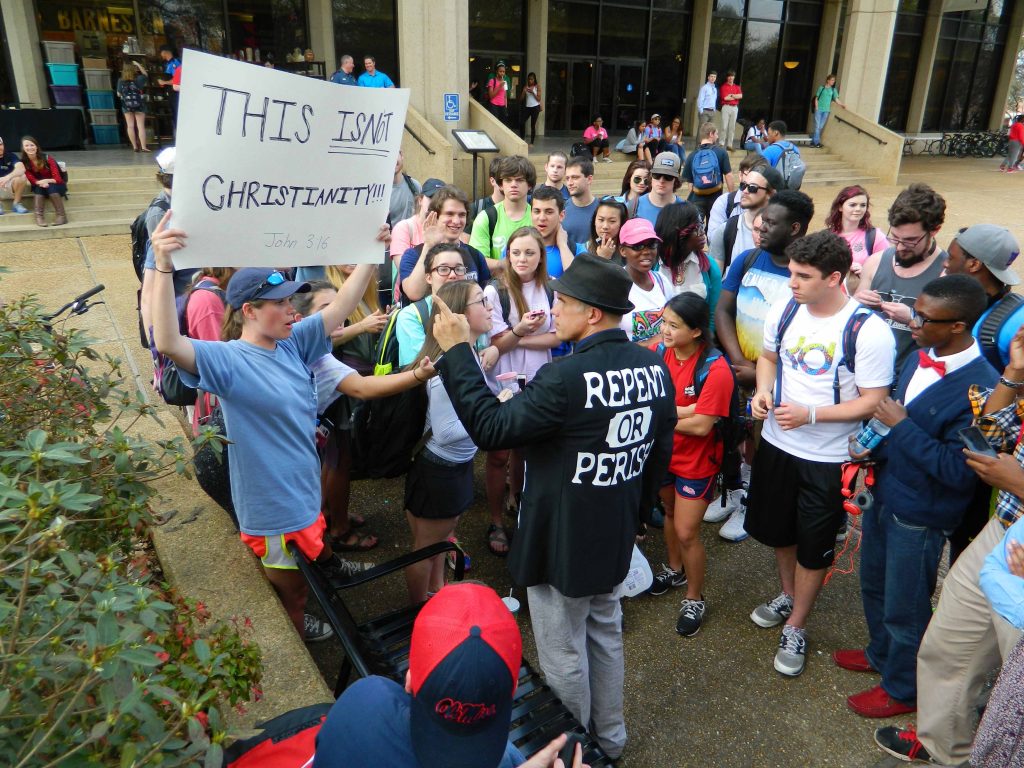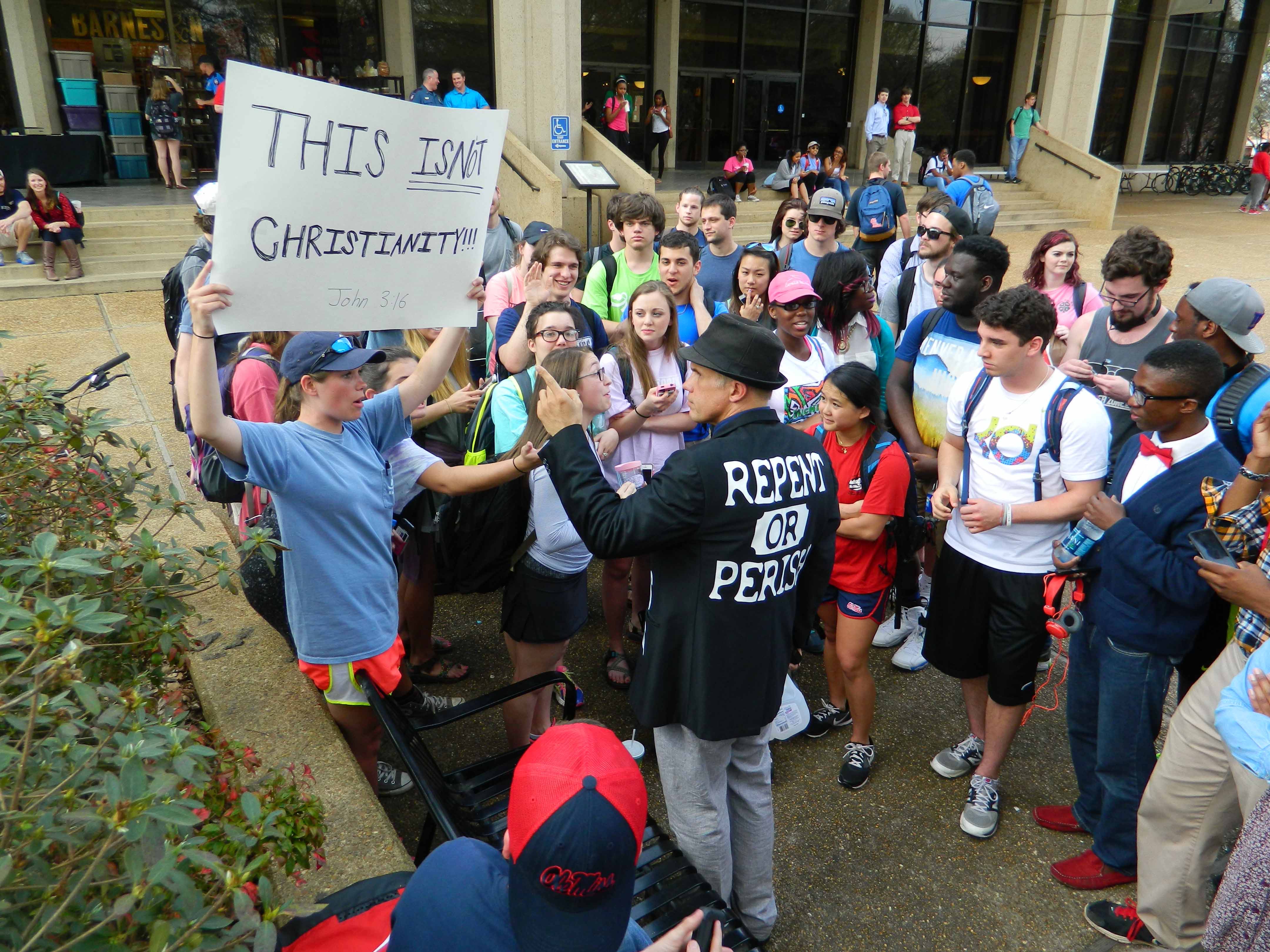College campuses are often at the center of the ongoing debate about how far-reaching the First Amendment’s protection of free speech should be. With several protests from groups from both ends of the political spectrum in recent weeks, Ole Miss hasn’t been immune to that conversation.

Although demonstrations are a common sight in public areas of campus and the Foundation for Individual Rights in Education designated Ole Miss as a “green light” university for free speech, many students are still unaware of the university’s free inquiry, expression and assembly policies.
In November 2017, the university established “Speaker’s Corners” on campus, where anyone, including non-students, can express themselves without permission from the school. These areas, including the Grove side of the Union, the area surrounding the flagpole in the Lyceum Circle and the plaza in front of Fulton Chapel, have brought a variety of demonstrations to campus.
“Those three spots were chosen specifically because they are high traffic areas and because they are not right up next to an academic building,” said Hal Sullivan, coordinator of student affairs programs. “So, it provides less of an opportunity to interfere with the university’s academic mission.”
Sullivan said the Speaker’s Corners were mostly designed for non-community members. Students, she said, have more leeway in where they can express themselves on campus.
“The rules aren’t super lined out for us,” said Camille Calisch, a Students Against Social Injustice member. “It’s more or less like if we break (a rule), they tell us. It also feels like they’re different depending on the time.”
While SASI is one of the more prominent organizers of student demonstrations, Calisch said she feels like many students don’t even know that they are allowed to demonstrate at Ole Miss.
Calisch said this semester alone, SASI has held two protests against the Confederate statue. They also organized a protest to protect former FBI director Robert Mueller’s investigation into Russian interference in the 2016 presidential election after former U.S. Attorney General Jeff Sessions’ resigned at the request of President Trump.
This semester, several religious groups and individuals touting their messages on posters and through megaphones have also assembled in the Circle.
In October 2017, the university formed a Demonstration Assembly Response Team (DART) to protect the First Amendment rights of everyone who comes to campus, student, faculty or otherwise. In addition to his role in the Office of Leadership and Advocacy, Sullivan acts a member of DART.
“Think about when we have certain preachers come to campus,” he said. “Students, at times, feel like they would like to have some sort of counter demonstration, so our job is to say, ‘If you would like to have a counter demonstration, that’s completely fine. Here’s a space where you can do that.’”
The Foundation for Individual Rights in Education cultivates the only public database of United States college speech policies, rating them based on the degree to which free speech is allowed and promoted at each particular institution. Sullivan said the university is proudly listed as a “green light” university, meaning that the university’s policies do not at all compromise free speech.
“When students are passionate about a cause, they should absolutely share that passion,” Sullivan said. “We always want to encourage spirited and healthy debate and an exchange of ideas, but at the end of the day, we want everybody to be safe.”
According to the Office of Leadership and Advocacy’s website, an organization can register for an event by logging onto MSync and and selecting “application for event registration.”
The website also states group should register for an event if organizers expect more than 150 people in attendance, alcohol is present, amplified sound is present and the event is open to off-campus guests.
















